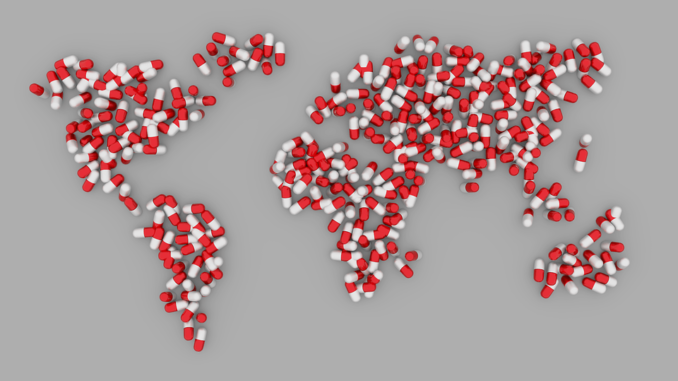
With a potential no-deal Brexit looming ominously in the future, what can practice managers do to prepare for both drug shortages and patient panic?
October 31st has been and gone, and Brexit is still as uncertain as ever. A new deal deadline of January 31st gives us a little more time to play with to prepare ourselves – but, unfortunately, preparing for the unknown is a difficult task, fraught with estimation and guesswork.
The future of a post-Brexit NHS is cloudy, meaning considerable panic is mounting around potential disturbances to the medical workforce, and patient care, but there has been no greater agitation than around the issue of possible drug shortages.
Will there or wont there be a problem with getting patients the medicines they need post-Brexit? Will inflation occur due to medicine stockpiling? Will our vital antidepressants and anti-inflammatories simply evaporate in the heat of a no-deal Brexit apocalypse?
It is easy to scaremonger in this way- which is what happened earlier this month when e-Surgery pharmacy published a lengthy list of medicines that may be harder to obtain after a no-deal Brexit.
Among the list are common birth control pills, several antibiotics, acid reflux medication, steroid creams for dermatitis, diabetes medication, anti-emetics and drugs prescribed for several mental illnesses. There is a total of 59 items – ensuring that almost everyone can scan the list and find that a medication they use is in potential Brexit jeopardy.
However, e-Surgery’s list has been called out as irresponsible by the Department of Health and Social Care (DHSC).
So how worried should we be about drug shortages, and what should practice managers do to ensure their patients suffer as little as possible as a result of Brexit delays and uncertainty?
The Yellow Hammer report
The government’s leaked Operation Yellowhammer documents detail what could happen to the UK under a worst-case, no-deal, Brexit scenario. A key section highlights how the flow of medicine distribution across the ‘short Channel straits’ could be as low as 40%. It warns that significant disruption could last for up to six months after the withdrawal date.
The term ‘short Channel straits’ refers to the main English Channel crossing into Dover – and three-quarters of medicines arrive in England via this route.
According to an article published by the Huffington Post, our medical supply chain is ‘global, complex and fragile’; if there is a problem in the manufacturing somewhere, this has a ripple effect on the entire chain.
With a no-deal Brexit chink in the medicine supply chain due to potential compromised distribution flow across the short Channel straits, the UK could suffer considerably… or, then again, it might not. We simply can’t know until we know the outcome of Brexit.
Nevertheless, many community pharmacists have preparations in place to minimise drug disruption, and many have faith in the DHSC’s contingency plans – because it is true that the government has plans in place to ensure a continued supply of medicines to patients from the moment we leave the EU. Getting medication, A DHSC policy paper, has assured that, ‘if everyone does what they should do, the supply of medicines and other medical supplies will be uninterrupted in the event of exiting the EU without a deal.’
The NHS take on this
The NHS have highlighted that drug shortages are a fluctuating and pre-existing problem which may or may not be affected by exiting the EU. They have offered reassurance that the NHS medicines optimisation team routinely check for drug shortages on both a local and national level. A system-wide, out-of-stock working group has also been formed so that primary and secondary care staff can collaborate to manage future stock shortages if or when they occur.
They say that, if Brexit does cause drug shortages, the NHS will respond to impending medical disruptions within 24 hours; they will offer guidance and recommendations to prescribers and patients, ensuring there is no need to panic.
NHS advice to GPs and practice staff
In the Brexit drug-shortage frenzy, it is easy to understand the impulse to stock-pile medicines so that your patients don’t suffer; however, Matt Hancock, secretary of state for health and social care, has advised GPs, practice managers and community pharmacies not to take any steps to stockpile additional medicines. He has also given assurances that there is no need for clinicians to write NHS prescriptions to cover longer periods. Practice managers should advise GPs to keep prescribing medications in their usual manner.
Practice managers and clinicians should also stress to their patients that there is no need for them to start stockpiling medications at home. If they are in need of further reassurance, you should direct them to this DHSC report.
Creating a poster or a leaflet about Brexit and drug shortages to put in your practice may also help reduce patient concern. It should contain information about the government’s plans and how the NHS will manage any drug shortages should a no-deal Brexit arise.
Ultimately, it is the practice manager’s job to minimise Brexit scaremongering in their practices. If the fear of drug shortages continues to escalate, Brexit anxiety may become a greater medical problem than the event of Brexit drug shortages itself.
Don’t forget to follow us on Twitter, or connect with us on LinkedIn!

Be the first to comment